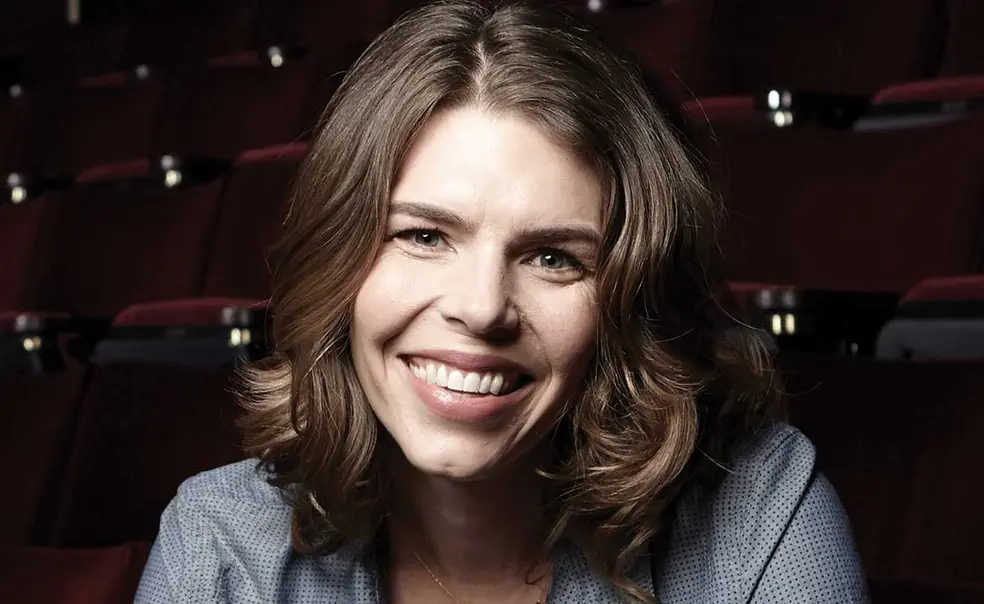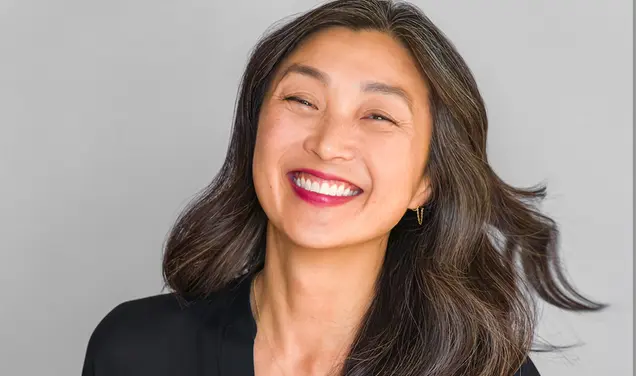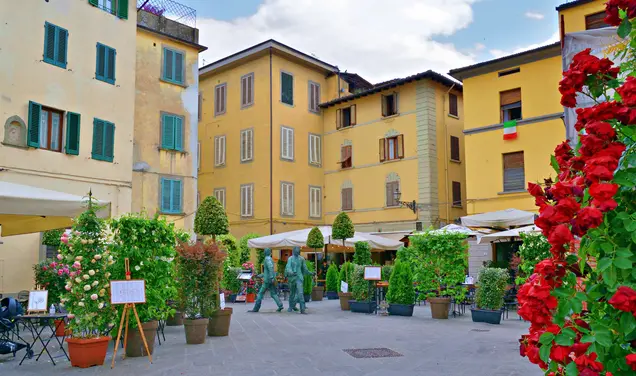Q&A: New McCarter Theatre Artistic Director Sarah Rasmussen
Rasmussen sees brighter days ahead for the theater after the pandemic
Sarah Rasmussen, the new artistic director at McCarter Theatre Center, arrived in Princeton last summer, but she has yet to participate in the excitement of an opening night in her new role. An experienced director who taught at the University of Texas, Rasmussen served as the artistic director of Jungle Theater in Minneapolis before coming to New Jersey. McCarter’s stages have been dark since last March, and the center laid off a majority of its staff in May. Rasmussen spoke with PAW about a range of topics, including the challenges of preparing the theater for a post-pandemic return.
What was it about McCarter and the community around it that made it an appealing place to work as an artistic director?
I’m a former professor — I ran the master’s-in-directing program at UT-Austin — so I’d spent time on a university campus, and that was intriguing to me. The alchemy of being in an academic environment and also an artistic environment brings together a lot of the things that make being an artistic director really rewarding. At the end of the day, theater isn’t about theater; it’s about absolutely everything else. I think of it as a very liberal-arts pursuit. Our stage is a container for sharing stories, for sparking conversation, and for bringing people of different backgrounds together to have both a personal experience and a shared community experience.
What has McCarter been doing to stay active and stay engaged with its audience?
It’s an enormously challenging time. I think there are also some really interesting silver linings that we’ll take away from it. One is that we’ve been very engaged in the digital world. We put all of our educational classes online, and we’ve been serving as many students online as we would have in person. What we’ve found is that we’re serving students who are in the vicinity, who already knew about us, but then also students who find us, in very far-flung places.
Do you feel there is an opportunity for arts institutions to expand their reach after the pandemic?
Absolutely. I think we’re going to be so hungry for live interaction. That was already a big part of the conversation in the interview process for McCarter, pre-COVID: building on the wonderful legacy McCarter has but also expanding upon that. Who is not in the audience yet that we want to reach?
In COVID time, so many of us have turned to artists to keep us sane and inspired, whether it’s watching storytelling on TV or listening to music — both for entertainment and as we grapple with racial reckoning. Artists have really been at the forefront of these conversations. My hope is that we really help artists through this incredibly tough time as much as we can, and then celebrate how essential arts are to our shared humanity, when we can gather again in person.
Last year was also characterized by discussions of racial justice, diversity, and inclusion — all prominent topics in the theater world that your predecessor, Emily Mann, spoke about in a 2019 interview with PAW. How do you hope to address diversity at McCarter?
Emily really was such a visionary in that area, long before it was ever something that most of the rest of the field was engaged in. I think it’s a “yes and.” It’s building on that strong representation of diverse stories on stage, and as we rebuild out of this time, a big conversation for us is making sure that diversity, equity inclusion, anti-racism philosophy embeds on all levels of the organization — so in the administrative staffing, in the behind-the-scenes staff. Our industry still tends to be predominantly white and male when it comes to technical staff. Not exclusively — McCarter has made great strides in gender parity under Emily — but we’re committed to continuing to be leaders in changing the landscape that people see not only on stage but behind the scenes as well.
I also think Princeton University has done some really incredible work — the youth symphony in Trenton, for example — and we’re having great conversations with our colleagues at the Lewis Center about how we can partner to make sure that we are creating access opportunities as early on as possible, especially in the lives of Black and brown students, to help them know that there are multiple roads to working in in the performing arts.
What sort of planning are you able to do to ensure McCarter can hit the ground running when it is possible to host in-person audiences?
We’re doing some exciting work with Princeton, digitally, in the very near future — a piece called The Manic Monologues. We’ve been working in partnership with the TigerWell initiative and folks at the University. That launches Feb. 18 and focuses on mental health.
We have digital programming that will continue to roll out through the cold months, and then what we’re planning for is in-person outdoor programming in the community in the spring and summer. We are looking at ideally being back in the more traditional format in the fall, knowing that we may still be dealing with some restrictions in terms of capacity. We are very much planning for, next academic year, being back in person in our buildings and doing all the hard work to come back safely.
Interview conducted and condensed by Brett Tomlinson












No responses yet